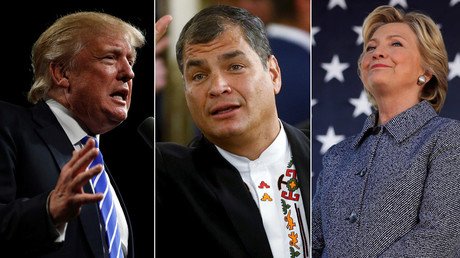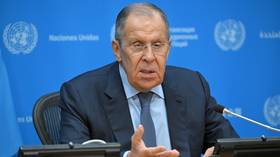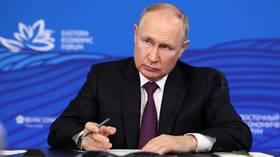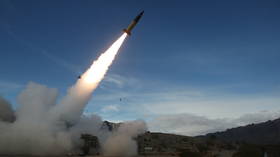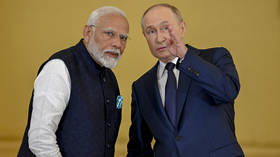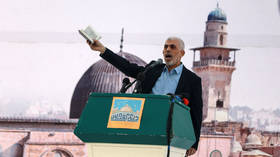Latin America is the most unequal continent in the world – Ecuadorian FM
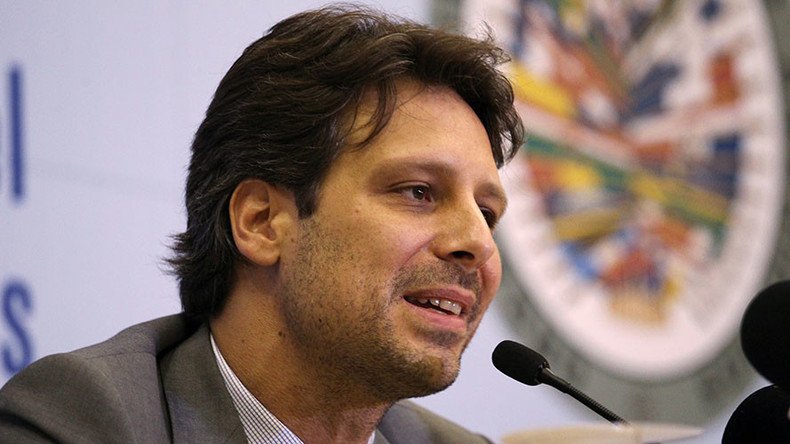
Latin America is not necessarily the poorest continent in the world, but it is the most unequal and damage caused by neoliberalism is largely to blame, Guillaume Long the Foreign Minister of Ecuador told RT’s Chris Hedges.
RT: Ten years ago we saw the rise in Argentina, Venezuela, Brazil, etc. challenging free trade agreements, pushing through social programs, and so on. That was a moment of hope, when many thought that they have broken free from the chains of American imperialism and corporate power. Could you describe that moment, what they did?
Guillaume Long: We have to start from the terrible damage caused by neoliberalism in Latin America, particularly in 1980’s and 1990’s. Neoliberalism in the US is sometimes called deregulation. I think neoliberalism is more complete, because there is an ideological component of it. Neoliberalism was very harmful to Latin America. It started with [Augusto] Pinochet in the 1970’s, and then in the 1980’s democratization in Latin America was permitted, because the Cold War was won, but it was conditioned on economically towing the line of the neoliberal ideology, and it was terrible.
Neoliberalism, I would argue from my left-wing perspective, is bad in most contexts: it has been bad in Europe, in another parts of the world; it has kind of dismantled the welfare state. But in a context where you already have a weak state, where institutions are not really consolidated with a kind of strong feudal remnants, such as in Latin America, where you don’t have a strong social contract with institutions, with modernity - neoliberalism just shatters any kind of social pact. And it meant more poverty, more inequality, huge wave of political instability.
In Ecuador before Rafael Correa was elected in 2007 – between 1996 and 2006 – that decade we had seven presidents. Now we’re back talking about impeachments again. We had three impeachment processes in ten years; a huge banking crisis, in 1999 – we lost our currency, because of neoliberalism, we switched to the dollar; several hundred thousand Ecuadorians left the country because of their assets, current accounts were frozen. It was bad in Argentina in 2001. It was bad in Bolivia. It was terrible – you had the water wars there. Latin America hit rock bottom. I think we realized that, as our people came to terms with that moment of the history and decided to rebuild their societies and to fight foreign interventionism, even I would say even imperialism; tackle what the main issue is still in Latin America, which is inequality.
Latin America is not necessarily the poorest continent in the world, but it is certainly is the most unequal continent in the world. A lot of Latin America’s structural problems have to do with that inequality. If you look at the kind of obscene wealth living side by side with total squalor in shanty towns – that is very much a feature of Latin America, which is also one of the most urbanized countries to stereotypes.
…So it was all about the recuperation of the nation state, the re-foundation in our case of a democratic republican state project, moving away from a neoliberal fundamentalism, it is kind of deregulation in an already deregulated environment. It is just anarchy. An in that kind of anarchy the powerful people, people with wealth, have even less checks and balances on their power.
RT: Throughout most of Latin America the internal security forces serve as a kind of Praetorian Guard for the oligarchic elite. That is why they exist. They are also riddled with various officials who work directly for the CIA and US intelligence. That was a problem in Ecuador as well, wasn’t it?
GL: Yes, we’ve been seriously infiltrated throughout the history by particularly the US, but probably other powers also.
It is about building a new state, a new democratic modern state that is sovereign, that is accountable to its own people that is not just serving the interest of a tiny little elite and foreign powers. That is what we’ve been doing.
I think we’ve been largely successful at this. It depends how you’re going to measure success. If you’re going to measure it in terms of longevity and how long these governments were in power, and in our case we’re still are in power and we’re going to win in February next year – then you’re looking at more or less, depending on what – in Venezuela has been maybe 17 years; in Ecuador now ten, in Argentina it was 13, in Brazil 13 – if you’re going to measure success in terms of political success, it was very successful. And if you’re going to measure success socio-economically, it is very successful too… Right now there is the whole kind of spin on the issue – that there is an end of the cycle, that we can discuss that. But broadly speaking these Latin American processes were successful – they reduced poverty, reduced inequality, they asserted sovereignty…
The statements, views and opinions expressed in this column are solely those of the author and do not necessarily represent those of RT.
